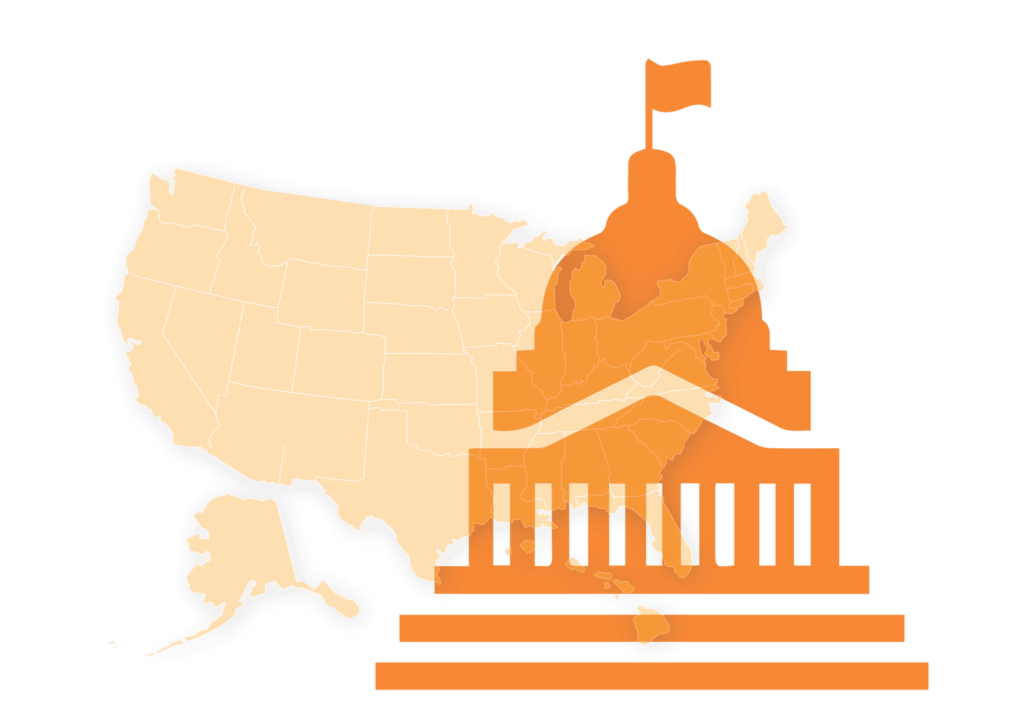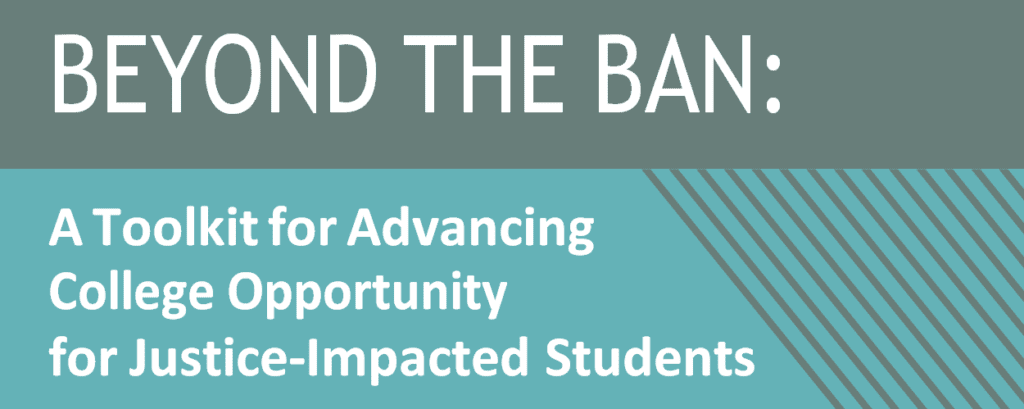Good afternoon. My name is Satra Taylor, manager of higher education justice initiatives at The Education Trust. I am here to give public testimony on behalf of The Education Trust.
As a national nonprofit organization working to close opportunity gaps that disproportionately affect students of color and students from low-income backgrounds, Ed Trust is broadly supportive of the Department’s plans to invite comment on, examine, and possibly revise several federal higher education regulations. We would especially encourage action to protect students and student loan borrowers by restoring and strengthening the gainful employment and borrower defense to repayment rules.
But today we want to focus on the Department’s implementation of Pell Grant eligibility for students in prison education programs.
Ed Trust is committed to expanding high-quality educational opportunities to individuals who are incarcerated. Along with our partners in the education, civil rights, and criminal justice communities – many led by people who have experienced incarceration – we urged Congress to rescind the 1994 Pell ban. We were thrilled to see Congress lift the ban in the December 2020 COVID-19 relief package.
Thankfully, this law contains early implementation provisions that allow the Department to implement Pell restoration quickly.
Which brings me to our chief concern for your consideration.
While the law was passed, the ban has yet to be fully lifted. The Department has until July 1, 2023, to do so, but it does not need to wait and should not wait to make students in prison eligible for Pell Grants. Until Pell Grants are restored, more than 400,000 eligible students in prison will remain locked out of higher education opportunities.
We urge you to act with deliberate haste to implement Pell Grants for students who are incarcerated this year, in 2021, while establishing safeguards to ensure that higher education in prison pays off for students and for taxpayers.
First, I’ll talk about why we think it’s so important that you issue guidance on reinstating Pell for students in prison, rather than go through a negotiated rulemaking process, and then I’ll return to the issue of safeguards.
Without Pell Grants, higher education in prison remains inaccessible to the overwhelming majority of students. After the 1994 ban was put in place, the number of education programs in prisons plummeted from more than 350 in 1990 to only a dozen in 2005. After the ban, the number of states offering college courses in prison fell by half, from 60% to 30%. The percentage of incarcerated individuals participating in postsecondary education programs dropped by half, too, from 14% in 1991 to 7% in 2004. In a lot of places, for a lot of students, no Pell for prison education means no higher education in prison.
Fewer carceral education programs means fewer justice-impacted individuals have access to essential educational opportunities that many of them were denied throughout the course of their lives. It means fewer justice-impacted individuals have the means to pursue opportunities for themselves and their families. It also means more individuals reengaging with the criminal justice system, higher incarceration costs, and continued community trauma, especially among Black and Latino communities disproportionately affected by incarceration. It also means delaying progress on addressing racial disparities in college attainment overall, which is an ongoing goal of the Department of Education.
The Second Chance Pell Experimental Sites Initiative proved that, given the chance, colleges can successfully ramp up higher education programs for students in prison. The sooner you restore Pell Grants for higher education in prison nationally, the sooner these students will have access to a high-quality higher education. In fact, more than 100 colleges that applied to be part of the Second Chance Pell program were denied the chance to participate. Colleges and universities are keen to educate students who are incarcerated.
Reinstating educational opportunity for these students cannot happen soon enough, and Congress has provided a way to expedite this policy.
The December 2020 COVID relief bill specifically allows for early implementation of this provision. Given the Department’s existing experimental sites, effective models are already in place to facilitate quick and efficient implementation. Existing frameworks for approval and reporting established by the Department can be repurposed in guidance to ensure that existing programs can expand responsibly and new programs can begin operating with fidelity.
As you know, Pell Grant eligibility for students in prison education programs has support across the political spectrum. The Education Department launched the Second Chance Pell Experimental Sites Initiative under the Obama administration and expanded it under the Trump administration. A wide range of stakeholders – including education and criminal justice advocates, think tanks, business leaders, faith-based organizations, and state departments of corrections teamed up to push Congress to lift the ban. The public reached consensus, Congress acted, and now it’s up to you to implement this policy.
The time for you to act is now.
Now, a word about safeguards. Through guidance outside of the negotiated rulemaking process, the Department can and should address several important issues related to program integrity and quality to ensure that students and taxpayers are protected when Pell Grant eligibility for students who are incarcerated is fully restored and prison education programs are implemented.
Prison education programs should only be eligible to administer Pell Grants if they:
- Offer students who are incarcerated the same opportunities for academic and career advising and counseling, as well as consistent access to programmatic information, that students who are not incarcerated receive;
- Ensure that the cost of the program does not exceed the value of the Pell Grant or other funding the institution may have received to support that program, and that no tuition, debt, fees, or other charges are passed on to the enrolled student in the form of out-of-pocket payments or loans that must be repaid;
- Facilitate students’ future career and educational goals through articulation agreements, transferability of credits, and admission and comprehensive support services for students;
- Partner with local, community-based organizations with documented reentry success to work together on comprehensive, full-service reentry programs;
- Identify ways to absorb the costs of transcript fees, since most students who are incarcerated are not in a financial position to pay for an official transcript;
- Understand the challenges of operating effective distance-education or correspondence programs for students who are incarcerated, and prioritize access to established face-to-face programs over solely asynchronous content;
- Build in enough time for students who are incarcerated to gather the necessary documentation for filing a FAFSA, and prohibit enrollment practices that give priority to students based on years to reentry or their probability of obtaining the documentation needed to fill out a FAFSA; and
- Assist students who have defaulted on federal student loans to rehabilitate those loans, so they can be eligible for federal student aid, and help ensure that students who are incarcerated are included in any student debt cancellation policies implemented by the administration or Congress.
At Ed Trust, we are proud to work alongside directly impacted individuals and experts in the field –through initiatives and networks like our Justice Fellows program and advisory board and the Unlock Higher Ed Coalition – on expanding higher education opportunities in prison.
Some of our partners will share their own comments and testimony about why it’s so important to expedite and require safeguards for the implementation of Pell Grants for students who are incarcerated. We hope you will take their perspectives into account as you decide how to proceed on this issue.
We welcome the opportunity to connect further with the Department to ensure that the voices of directly impacted individuals, practitioners, policy experts, and advocates are at the forefront of this effort to efficiently and effectively implement Pell Grant eligibility for students in prison education programs.
Thank you.

 June 21, 2021 by
June 21, 2021 by 



